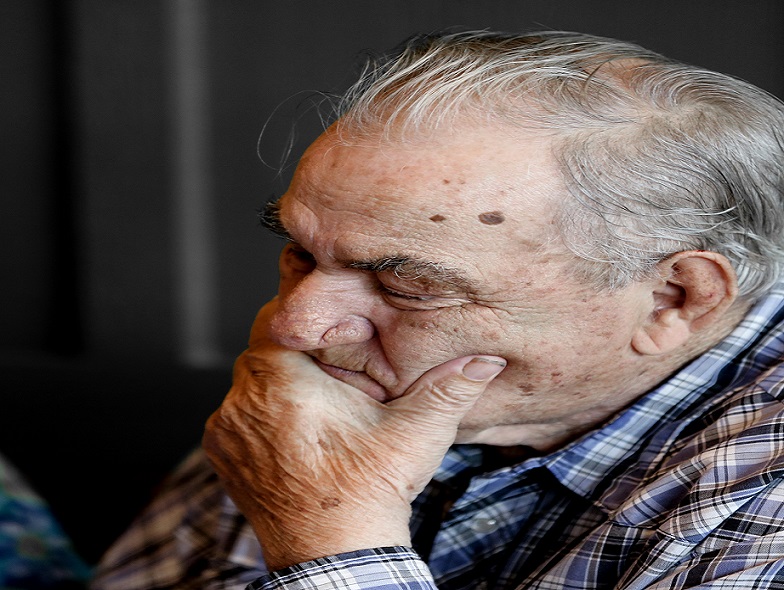Tragically, millions of people around the globe are impacted by elder abuse. Unfortunately, it often goes unrecognized or unreported due to a variety of factors, including shame, fear, or dependence on the abuser. As a society, it’s crucial to be vigilant and aware of the signs of elder abuse to protect vulnerable elders. The blog will discuss several signs that may indicate elder abuse.
Physical Injuries
Any physical injuries that cannot be explained or that occur repeatedly are one of the most obvious indicators of elder abuse. Injuries such as burns, wounds, fractures, and bruises are examples of these. When looking for signs of purposeful harm, it is important to pay special attention to injuries that occur in uncommon or hidden regions, such as the inner arms, thighs, or torso. So, if you suspect that your elderly loved one’s physical injuries are the result of abuse, you need to understand the importance of elder abuse lawyers. These lawyers are experts at navigating the complexity of abuse laws and helping victims and their families receive the crucial help, direction, and compensation they deserve.
Emotional Changes
Emotional abuse is just as harmful as physical abuse, although it is frequently more difficult to identify. It entails the infliction of mental agony, distress, or anguish by acts that are either vocal or non-verbal. Emotional abuse can manifest itself in a variety of ways, including withdrawal, melancholy, anxiety, unexpected changes in behavior, or fearfulness around specific individuals. Elderly people may exhibit low self-esteem, feelings of worthlessness, and self-isolation.
Typical instances of emotional abuse include humiliation, intimidation, or manipulation, all of which are directed toward the elderly adult to gain control or influence over them. It is possible for the impact on mental health to be significant, resulting in emotions of hopelessness, helplessness, and even thoughts of suicide. There is a possibility that victims will grow more and more isolated, which will further increase their susceptibility to abuse.
Financial Exploitation
Elderly people are commonly the target of financial exploitation because of the perception that they are vulnerable and the assets that they have collected over time. Unexpected withdrawals from bank accounts, rapid changes in financial papers such as wills or powers of attorney, or the disappearance of valuables are all possible indicators of money laundering and other forms of financial abuse. It is important to be aware of family members or carers who have an excessive amount of power over the financial matters of an elderly person, who refuse to offer financial information, or who isolate the elderly person from other people who can be trusted.
Neglect
When caregivers fail to offer appropriate care and support to meet an elderly person’s fundamental requirements, this is an example of neglect. Inadequate cleanliness, medical issues that are not being handled, or hunger are all possible indicators of neglect. When it comes to their living environment, elderly adults may appear chaotic, malnourished, or uncared for.
Neglect can have severe consequences for the health and well-being of the elderly adult, which may result in deterioration, disease, or death at an earlier age. Caregivers can fail to fulfill their duties owing to a lack of awareness, resources, or capacity, which puts the elderly adult in danger of being harmed. In the absence of support or the resources to seek assistance, victims may experience feelings of abandonment, helplessness, or resignation from their circumstances.
Unexplained Changes in Living Situation
Concerns ought to be raised whenever there is a sudden or inexplicable change in the living environment of an elderly person, such as when they move in with a new carer or extended family member. These modifications may be accompanied by explanations that appear ambiguous or confusing.
Abusers can take advantage of the reliance or cognitive deficiencies of an elderly person to force them into living arrangements that are hazardous to their health. Whenever the elderly person exhibits any signs of compulsion, hesitation, or resistance about their living condition, pay attention to these signs.
Isolation
Isolation is a phenomenon that arises when elderly adults are purposefully cut off from social connections and support networks, which makes them more susceptible to being abused. It is possible to have symptoms of isolation, such as withdrawing from activities that were formerly enjoyable, having minimal contact with family or friends, or experiencing an abrupt change in routine. It’s not uncommon for elderly adults to voice feelings of isolation, abandonment, or powerlessness.
Abusers engaging in the practice of isolating elderly individuals may employ strategies such as restricting social connections, regulating access to communication devices, or changing the environment of the elderly adult. Existing health conditions may become even more severe as a result of the repercussions, which may include greater dependence, a decrease in quality of life, or a worsening of the illness. Because they lack the resources or the support to seek assistance, victims may experience feelings of being trapped, powerless, or resigned to their circumstances.
Conclusion
Being vigilant, having compassion, and being willing to intervene are all necessary components to identify and handle elder abuse. You can aid in protecting older individuals from harm and ensuring that they receive the support and assistance that they deserve if you become familiar with the indications of elder abuse.
